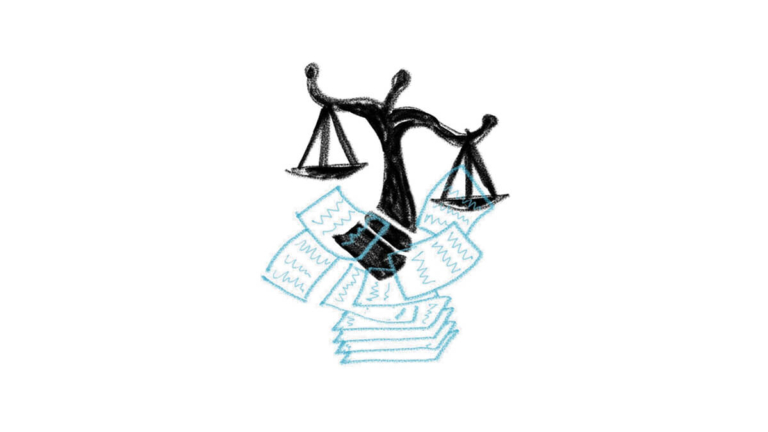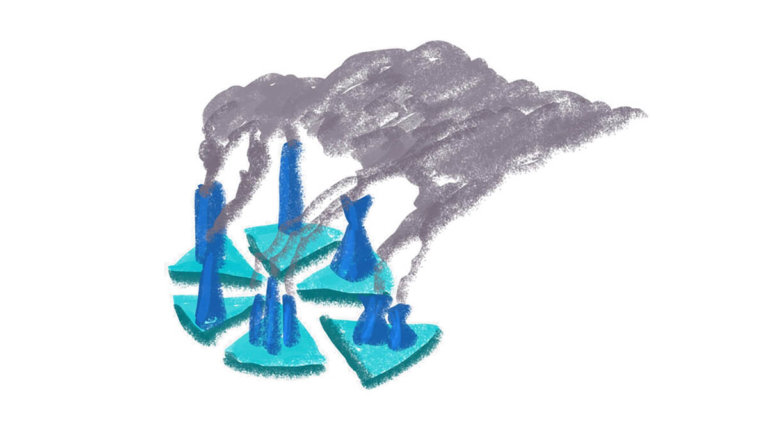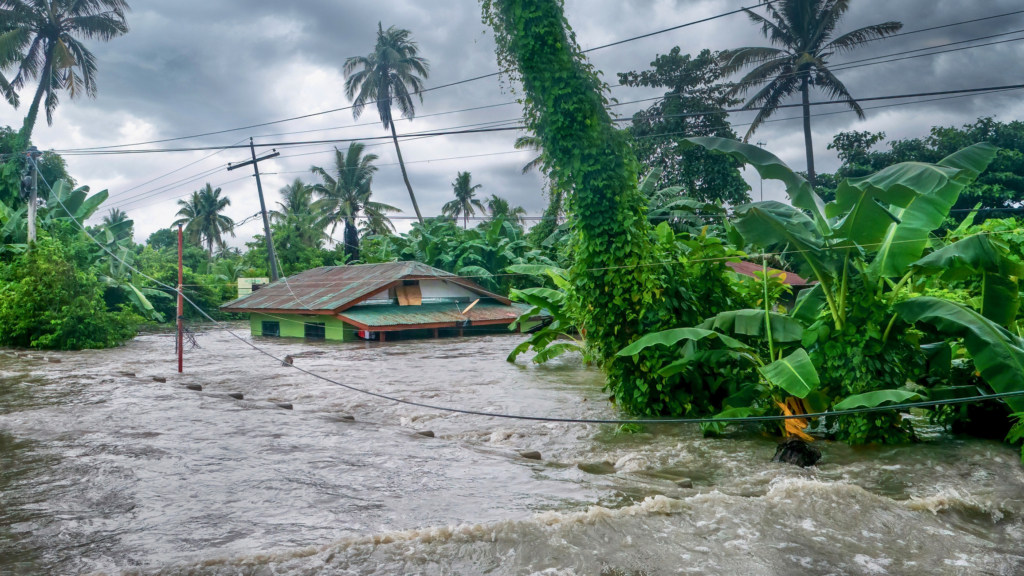Casebook Info
Following a first-of-its kind investigation, the Philippines Commission on Human Rights surprised legal observers by announcing its finding that Carbon Majors and other carbon-intensive industries could be held legally and ethically accountable for human rights violations resulting from climate change.
Although non-binding, the Commission’s landmark finding set a key precedent for future climate litigation and marks a significant step forward in the fight for climate justice. The inquiry centers communities at the frontlines of climate change and holds powerful corporations responsible for their role in creating, and profiting off, the climate crisis.
- Year Filed 2015
- Year of Most Recent Ruling 2022
- Year of Final Ruling 2022
- Jurisdiction Philippines
- Court Name Philippines Commission on Human Rights
- Primary Focus Mitigation, Reparation
- Ruling On Merits
- Plaintiff(s) Greenpeace, Filipino NGOs, and citizens
- Respondent(s) 47 Carbon Majors
- Outcome N/A
- Organizational leader of the litigation Greenpeace Southeast Asia
- Link to the decision/ruling
Background
In 2013, the Philippines experienced so many typhoons that the country ran out of letters with which to name them, forcing meteorologists to go back to the beginning of the alphabet and start again with A. The most devastating of these, Typhoon Haiyan, displaced 4 million people, killed at least 6,300, and resulted in damages costing more than $12 billion. Typhoons are not uncommon in the Philippines, but climate change has greatly increased both their frequency and intensity. As a result, the Global Climate Risk Index (GCRI) has for the past twenty years identified the Philippines as one of 10 countries most affected by climate risks.
In the most storm-exposed country on earth, a group of Filipino NGOs and citizens set about seeking accountability from the primary drivers of climate change. The petitioners fixed on the “Carbon Majors,” a set of investor-owned corporations named for being the world’s largest producers of fossil fuels and, consequently, global greenhouse emissions. The Carbon Majors include such household names as BP, Shell, Chevron, and ExxonMobil.
In 2015, the petitioners, including Greenpeace, asked the Philippines Commission on Human Rights (“CHRP”) to investigate two key issues:
- The human rights implications of climate change, ocean acidification, and the resulting rights violations in the Philippines; and
- Whether the investor-owned “Carbon Majors” breached their responsibilities to respect the rights of the Filipino people.
In light of the Philippines’ unique vulnerability to climate change and the new scientific evidence demonstrating Carbon Majors’ responsibility for “the lion’s share” of cumulative global emissions, the petitioners asked that the corporations be held accountable for human rights violations. They argued that, by helping to cause climate change, the Carbon Majors had violated Filipinos’ rights to life, physical and mental health, food, water, sanitation, adequate housing, and self-determination.
The petitioners invoked the Commission’s jurisdiction to investigate all forms of human rights violations and the international human rights treaties ratified by the Philippines. Significantly, the petitioners also invoked the United Nations-endorsed Guiding Principles on Business and Human Rights (“Guiding Principles”) – which states that corporations owe a responsibility to respect human rights.
In 2017, the Commission agreed to investigate the petitioners’ claims. Several of the Carbon Majors challenged the Commission’s jurisdiction by claiming that the allegedly wrongful conduct (greenhouse gas emissions) took place largely or entirely outside the Philippines. But the Commission categorically rejected the idea that its mandate was limited to actors operating within national territory. The Commission found that it could investigate the alleged violations—
even if caused by activities outside the country— under the Philippines Constitution, which gives the commission a mandate and duty to investigate rights violations in the country.
Over the next two years, the CHRP conducted a quasi-judicial investigation that included community dialogues, fact-finding missions, witness testimony, and public hearings.
The Commission’s 2019 Findings & Recommendations –
At the United Nations climate negotiations (“COP25”) of 2019, the Commission stunned the world by announcing its first-of-its-kind finding that major fossil fuel companies – such as the 47 Carbon Majors under investigation – could be held legally and morally liable for human rights violations from climate change.
Though the Commission concluded that the current framework of international human rights law did not cover corporations’ legal responsibility for climate damage, the investigation found that the Carbon Majors bore moral responsibility for the rights violations arising from their production and emission of greenhouse gases. Additionally, the Commission found that existing civil law in the Philippines did provide grounds for legal liability.
Moreover, the Commission announced it could be possible to hold companies criminally accountable where it could be clearly proven that they “engaged in acts of obstruction and willful obfuscation.” These findings led the Commission to emphasize that individual States have a responsibility to pass strong domestic legislation establishing liability for climate change impacts.
“The Commission’s recognition that there is evidence of criminal intent with respect to climate denial and obstruction is particularly significant,” said Carroll Muffet, the President of the Center for International Environmental Law. “Both for civil and criminal liability [], the Commission’s findings in this inquiry represent not an end of the legal investigations into Carbon Majors [] but a major new beginning.”
In addition to its central finding, the Commission put forward several critical conclusions and recommendations regarding the global state of climate change, its primary drivers, and its impact on fundamental rights. Firstly, the Commission confirmed that corporations must respect human rights – as articulated by the Guiding Principles – and owe a duty of due diligence regarding the impacts of their conduct. Secondly, the Commission reaffirmed the role of National Human Rights Institutions (NHRIs) in working with national governments, and emphasized the need for additional regulation of the private sector.
Lastly, the Commission’s inquiry process and accumulation of evidence were themselves invaluable. The Commission drew upon, and made publicly available a huge volume of evidence from representatives of impacted communities, scientists, legal experts, and researchers from a variety of fields. In doing so, the Commission established a body of information on the human rights implications of climate change and the Carbon Majors’ early knowledge of those impacts. This evidence laid a foundation for future litigation and efforts to establish liability for climate change impacts.
Perhaps most importantly, the Commission’s 2019 findings represent a huge symbolic victory for the advancement of human rights. By naming the Carbon Majors as responsible for climate change and rights violations, the Commission delivered a significant challenge to the global culture of corporate impunity and indifference.
The Commission’s Final 2022 Report –
In 2022, the Commission released its Final Report (“FR”) containing numerous findings and recommendations from its five-year investigation. The following are some of the report’s most important findings:
- Corporations have a responsibility to protect human rights, and to meet this obligation under the UN Guiding Principles they must: (a) avoid contributing to adverse human rights impacts and address impacts when they occur; and (b) seek to prevent or mitigate adverse human rights violations directly linked to their operations, products, or services (FR at 90). This obligation extends to all entities within each corporation’s value chain (FR at 112);
- The Carbon Majors had knowledge, awareness, or notice of their products’ adverse impacts on the environment and climate system by the 1960s, if not earlier (FR at 100);
- The Carbon Majors, individually or in concert, sowed misinformation about climate change and engaged in willful obfuscation and obstruction to prevent meaningful climate action (FR at 104-109);
- Aside from liability anchored on acts of obfuscation, fossil-based companies may also be held accountable by their shareholders for continued investments in oil exploration for largely speculative purposes; for failing to comply with specific administrative or regulatory requirements; or for specific and direct human rights violations, such as extrajudicial killings (FR at 109);
- All acts to obfuscate climate science and delay, derail, or obstruct the transition to clean energy may be a basis for liability. At the very least, they are immoral (FR at 115). Climate change denial and efforts to delay the global transition from fossil fuel dependence persist. “Obstructionist efforts are driven, not by ignorance, but by greed. Fossil fuel enterprises continue to fund the electoral campaigns of politicians, with the intention of slowing down the global movement towards clean, renewable energy.” (FR at 110);
- The Carbon Majors, including all entities within their value chains, have the corporate responsibility to undertake human rights due diligence and provide remediation. Corporations within the jurisdiction of the Philippines may be compelled to conduct due diligence and held responsible for failure to remediate past human rights violations that their business operations contributed to (FR at 113).
Although the Report is non-binding, it nonetheless provided the Carbon Majors and other carbon-intensive industries with a series of recommendations, directing the Majors to publicly disclose the results of due diligence, climate, and human rights impact assessments, including any measures taken to address associated risks (FR at 130); to desist from all conduct undermining climate science (FR at 131); to halt exploration of new oil fields, keep fossil fuels underground, and lead a just transition to clean energy (FR at 131); to take action to mitigate their greenhouse gas emissions and adequately report on their total emissions (FR at 95); to help finance necessary mitigation and adaptation measures (FR at 131); and to cooperate with experts, stakeholders, and others to evaluate and advance corporate climate action (FR at 132).
The Commission also provided recommendations for governments, financial institutions, international bodies, and others. The Commission called on States to, among other things, discourage dependence on fossil fuels (FR at 118), cooperate with other States towards the creation of a binding treaty strengthening implementation of the Guiding Principles (FR at 119), provide redress mechanisms for victims of business-related human rights violations (FR at 119), and make concrete the responsibility of businesses in the context of climate change (FR at 120).
Similarly, the Commission called on financial institutions and investors to refrain from financing carbon-intensive projects; to instead direct capital towards ‘Green’ projects; and to exert social, political, and economic pressures on the fossil fuel industry to transition to clean energy (FR at 133-34).
- 198 tons the weight of one boulder Typhoon Haiyan displaced onto the shore
- 4 million people the number of those displaced by Typhoon Haiyan in November of 2013
- .5% the amount of its GDP the Philippines is forced to spend annually on natural disasters
Strategies
Centering rights

The Carbon Majors Inquiry represents a pioneering and successful attempt to articulate climate change impacts as human rights violations. In doing so, the petitioners made diffuse and sometimes indefinite climate impacts both understandable to the public and recognizable under the international legal framework. This also allowed the petitioners – and the Commission – to center the voices and plight of communities on the frontlines of climate change, where the crisis has already taken a serious toll.
Bringing the case in a more favorable venue / jurisdiction.

The petitioners’ made a strategic choice to submit their allegations to the Philippines Commission on Human Rights, despite the Commission’s lack of binding enforcement power. When several of the Carbon Majors disputed the Commission’s jurisdiction, the Commission’s unique constitutional mandate allowed them to emphasize the location of the human rights harms and where they were felt, regardless of where the rights-violating actions were carried out. Similarly, because the Philippines served as Chair of the Climate Vulnerable Forum (CVF) the year of the petitioners’ original submission, and had been identified as vulnerable by the Global Climate Risk Index for 20+ years running, it could hardly be disputed that Filipino citizens bore (and continue to bear) a disproportionate burden from climate change. The Philippines’ unique vulnerability to climate change not only lent the inquiry a greater sense of urgency and concreteness but also bolstered petitioners’ claims of disproportionality: that the country contributed little to the climate crisis but suffered a significant portion of its effects.
Affirming country / corporate responsibility for their ‘fair share’ of emission reductions, regardless of the actions of other countries or corporations.

Critically, the petitioners built their case on the research conducted and compiled by investigator Richard Heede, which detailed for the first time the Carbon Majors’ collective and individual contributions to net global greenhouse gas emissions over time. This data – in addition to the evidence demonstrating their early knowledge of climate risks – served as the basis for the petitioners’ claim that the Carbon Majors violated the human rights of Filipino citizens. Use of the data by the Commission set an important precedent for reliance on scientific consensus and for the causal apportioning of climate responsibility based on historic emissions data.
Takeaways
Corporations do have human rights obligations, and Carbon Majors can be held accountable for human rights violations resulting from climate change anywhere in the world. The Commission confirmed for the first time that carbon-intensive energy corporations violated human rights by significantly contributing to climate change. It further recommended that businesses are obligated under the Guiding Principles to respect human rights, conduct due diligence, prevent future harms, and provide remediation for harms that have already occurred.
National Human Rights Institutions (NHRIs) have an important role to play in the development of climate law. Even though the CHRP had no enforcement powers and was unable to order compensation for victims, they still held a mandate to investigate alleged human rights violations – which they fulfilled to their fullest extent. Likewise, despite the fact that the Commission’s Final Report is a non-binding document, it can still be invoked by claimants in domestic courts, retains enormous normative and persuasive influence, and helps to establish critical precedent. Given the political barriers to holding powerful corporations accountable, it may be that bodies without enforcement powers are more willing to take the first steps toward corporate accountability.
Focusing on existing harms, rather than prospective harms, can craft a stronger case. Here, the petitioners pointed to the Philippines’ preexisting climate vulnerability and the damage to human rights, lives, and property already caused by climate change-strengthened typhoons. This helped the Commission to establish jurisdiction and brought a heightened sense of urgency to the investigation. This emphasis on existing harms distinguishes the Carbon Majors Inquiry from cases such as Urgenda v. Netherlands, which focused on preventable and foreseeable impacts rather than impacts already felt.
Impacts
The Carbon Majors Inquiry marks a significant step in the push for climate justice. As the first ever climate-related investigation into corporate responsibility, it brought international scrutiny to bear on corporations rather than states and shed light on the troublingly disproportionate burdens – and profits – created by climate change.
The Inquiry also helped to establish a new basis of liability for international, transboundary harms and extraterritorial obligations by centering human rights violations rather than the activities from which those harms resulted. This is a significant contribution, given that governments across the world often take cues from each other. The Commission’s report will likely influence other courts and governments as they craft new approaches to recompense victims and distribute the burdens of climate change.
Moreover, the Commission demonstrated how NHRIs can support victims of human rights violations and issued a Report that can effectively serve as a primer, roadmap, or inspiration for further action. The Report’s scientific basis and public record offer monumental value, both by demonstrating how scientific knowledge can enable more reliable causal attribution and by serving as a body of evidence which future cases, courts, and tribunals can use when addressing states’ and businesses’ climate obligations.
Finally, the Carbon Majors Inquiry hopefully marks a turning point in the global approach to climate accountability. The Inquiry has the potential to propel further rights-based litigation and increase scrutiny on the world’s biggest polluters.
